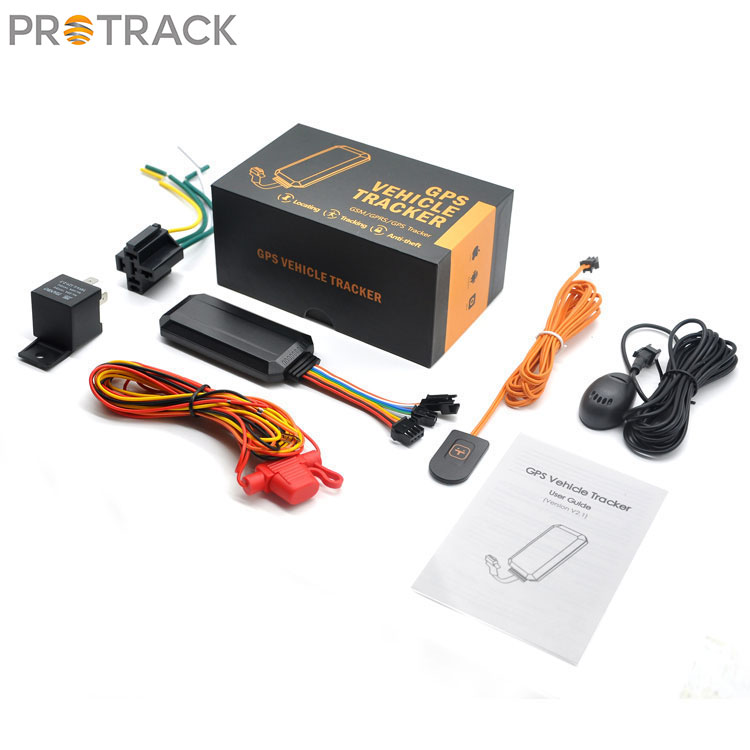The Ultimate Guide to GPS Trackers: Everything You Need to Know
2025-01-13
What is a GPS Tracker?
A GPS tracker is a device that uses the Global Positioning System (GPS) to determine the location of an object or person in real-time. These trackers are commonly used to monitor vehicles, pets, personal belongings, or even people. By connecting to satellites orbiting Earth, a GPS tracker can provide accurate, real-time data about the location of the object it’s attached to, allowing users to track movements and ensure safety.
How Do GPS Trackers Work?
GPS trackers work by receiving signals from multiple GPS satellites. Once the tracker locks onto the satellite signals, it calculates its exact position based on the time it takes for each signal to reach the device. The device then transmits this data either through cellular networks, satellite communication, or Wi-Fi, depending on the type of GPS tracker. This allows users to monitor the location remotely using a smartphone app, web interface, or specialized software.
What Are the Different Types of GPS Trackers?
GPS trackers come in a variety of types, each designed for specific uses. Some of the most common types include:
1. Vehicle GPS Trackers: These are used to monitor the location of cars, trucks, or other vehicles. They can track routes, speed, and even engine performance, making them ideal for fleet management or personal vehicle tracking.
2. Personal GPS Trackers: These compact devices are designed to be carried by people, such as children, elderly family members, or outdoor adventurers. They provide peace of mind by allowing loved ones to track their movements.
3. Pet GPS Trackers: These trackers are attached to pets' collars, ensuring you can monitor their location, whether they are indoors or outdoors. They are particularly useful for preventing pets from getting lost.
4. Asset GPS Trackers: These are used to track valuable equipment, machinery, or high-priced assets that need to be monitored for security reasons.
5. GPS Tracking Systems for Equipment: Used in industries like construction or logistics, these trackers are attached to machinery, construction vehicles, or other large equipment to monitor their usage and location.
Why Should You Use a GPS Tracker?
There are several reasons why using a GPS tracker can be beneficial:
1. Security: A GPS tracker can provide real-time location updates, helping to recover stolen vehicles or assets. It also helps ensure that pets or loved ones are safe, especially in cases where they may wander off.
2. Peace of Mind: Whether it’s tracking a teenager’s movements or ensuring the safety of an elderly parent, GPS trackers offer reassurance that someone is always aware of the person’s or object’s location.
3. Fleet Management: For businesses, GPS trackers provide valuable data about the performance of vehicles and drivers. This includes speed, route optimization, and even fuel consumption, which can help reduce operational costs.
4. Prevent Theft: GPS trackers are often hidden in vehicles or valuable assets, making it easier to recover stolen items quickly. Some devices even have features that alert the owner if the tracker is tampered with.
5. Efficient Navigation: With real-time location tracking, GPS trackers can help optimize routes and provide more efficient navigation, saving time and reducing fuel costs for both individuals and businesses.
What Features Should You Look for in a GPS Tracker?
When selecting a GPS tracker, there are several features to consider to ensure you get the most out of your device:
1. Real-Time Tracking: Look for trackers that provide real-time location updates. This ensures that you can monitor movements as they happen.
2. Battery Life: The battery life of the tracker is crucial, especially if the tracker is meant to be used over long periods. Some trackers offer extended battery life, lasting days or even weeks.
3. Geofencing: This feature allows you to set virtual boundaries for the device. If the tracker moves outside the defined area, you’ll receive an alert, helping you monitor movement and ensure safety.
4. Tracking Alerts: Many GPS trackers come with customizable alerts, such as notifications for speeding, low battery, or movement outside a designated area.
5. Water Resistance: If you plan to use the tracker outdoors, or for tracking pets, look for a waterproof or water-resistant model to ensure it withstands the elements.
6. Compact Size: Depending on where you need to attach or carry the tracker, the size of the device matters. Some GPS trackers are small and discreet, while others may be larger and more noticeable.
7. Multi-Platform Support: Many modern GPS trackers support both mobile apps and web interfaces, allowing you to monitor the tracker on your smartphone, tablet, or computer.
Can GPS Trackers Be Used for Personal Safety?
Yes, GPS trackers are often used for personal safety. Personal GPS trackers are designed to be portable and easy to carry, allowing users to stay connected to their loved ones. These trackers typically come with a panic button or emergency alert system that, when activated, sends a distress signal along with the device’s exact location to a designated contact or emergency services. This is especially useful for people working in risky environments, children, elderly individuals, or outdoor enthusiasts.
Are GPS Trackers Legal?
In most places, GPS trackers are legal as long as they are used for personal or business purposes. However, there are laws surrounding privacy and consent. For example, tracking a person’s location without their knowledge or consent may violate privacy laws. It’s important to ensure that you are following local laws and regulations when using GPS trackers, especially when they are used for tracking people.
How Accurate Are GPS Trackers?
GPS trackers are generally very accurate, with location accuracy typically within 5 to 10 meters. The accuracy can depend on several factors, including:
- The number of satellites the device can connect to: The more satellites it can connect to, the more accurate the location.
- Obstructions: Buildings, trees, and other obstructions can interfere with the GPS signal and reduce accuracy, especially in urban areas or forests.
- Tracker Quality: The quality and sensitivity of the GPS tracker also affect its accuracy. Higher-end models tend to be more precise.
How Do You Use a GPS Tracker?
Using a GPS tracker is usually straightforward. Here are the basic steps:
1. Install the Device: Place the GPS tracker in the location you want to monitor. For vehicles, this may be under the dashboard or hidden within the car. For pets, attach it to the collar.
2. Activate the Tracker: Follow the manufacturer’s instructions to activate the GPS tracker. This may involve charging the battery, setting up an account, and configuring notifications.
3. Monitor the Location: Use the associated app or website to monitor the device’s location in real-time. You may also set alerts for specific events, such as movement, low battery, or leaving a designated area.
4. Maintain the Tracker: Regularly check the battery level, ensure the device is working correctly, and update the app or software as necessary.
Conclusion
GPS trackers are incredibly useful devices that offer a wide range of benefits, from providing security and peace of mind to improving fleet management and asset protection. Whether you’re tracking your vehicle, monitoring the movements of a loved one, or keeping tabs on valuable equipment, a GPS tracker can offer the real-time location information you need. When choosing the right GPS tracker, consider factors such as battery life, accuracy, size, and the specific features you need to ensure that it fits your requirements perfectly.



